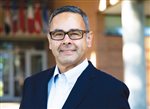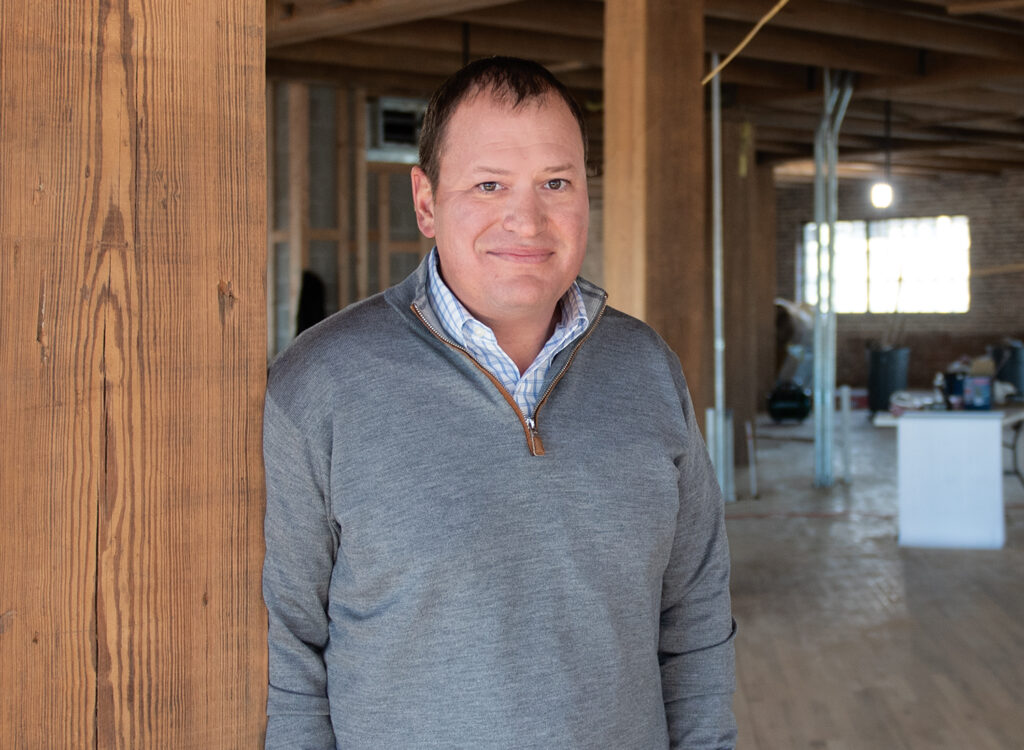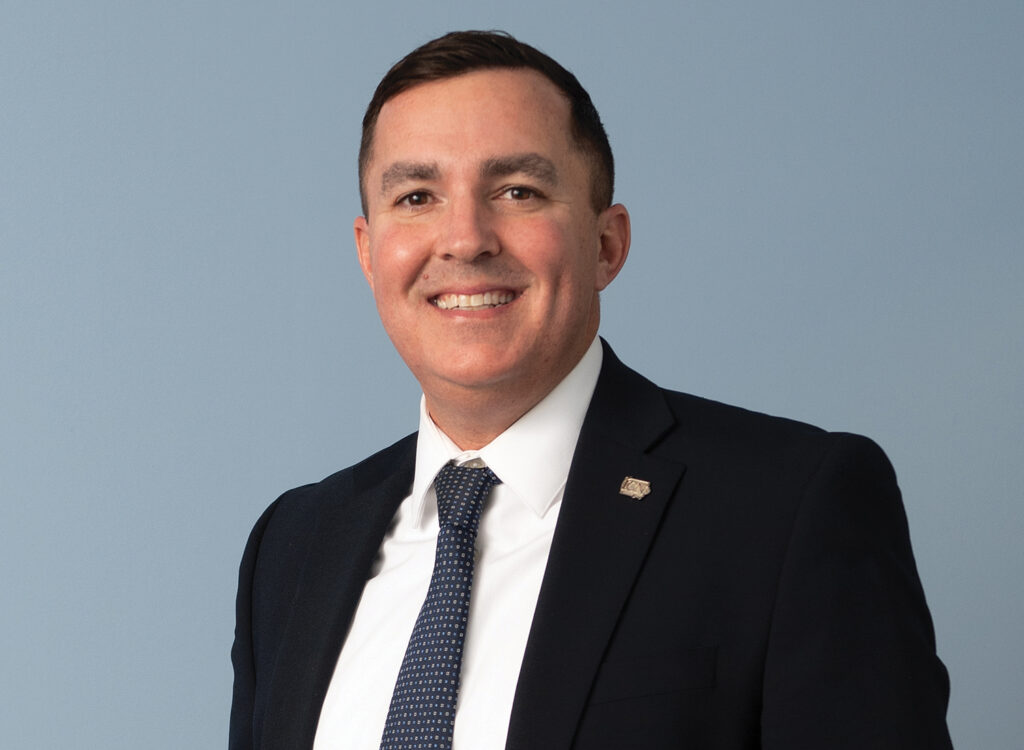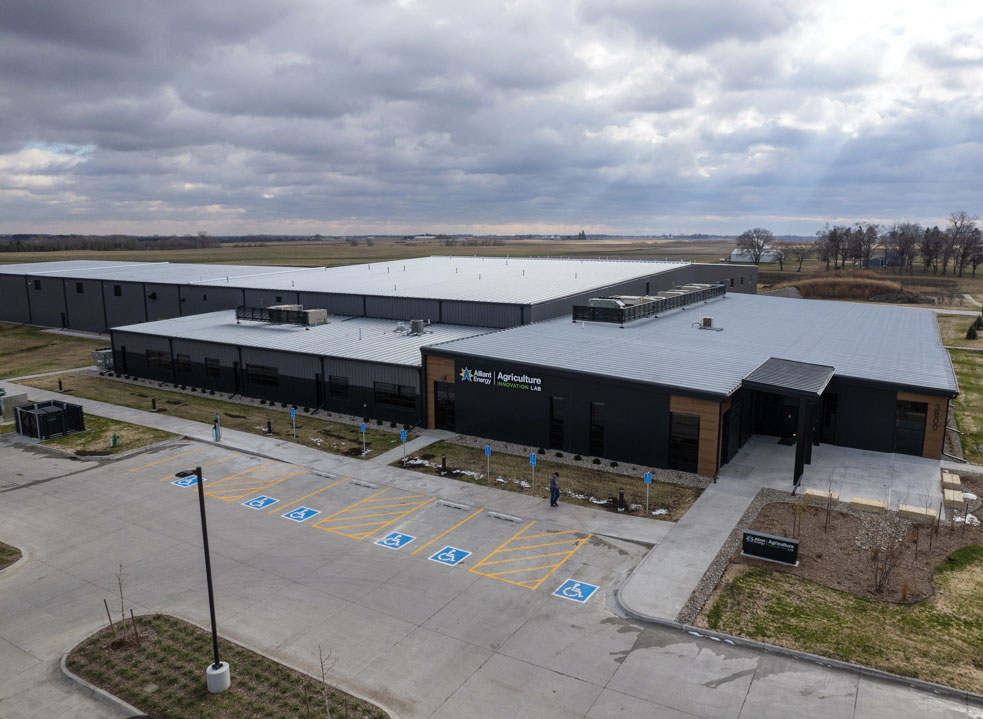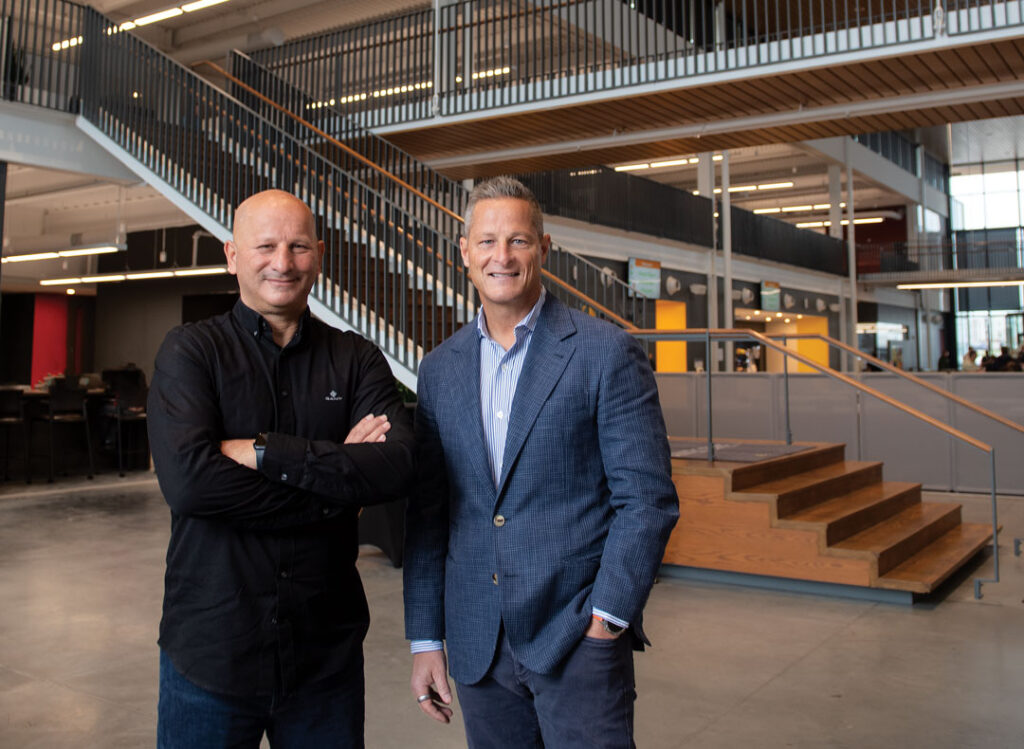Measurable Outcomes
Former Wells Fargo corporate social responsibility leader begins new role at Drake's business school

Alejandro Hernandez began his new role as dean of the College of Business and Public Administration at Drake University on Aug. 14. Most recently he was a senior vice president with Wells Fargo & Co., where he was responsible for the company’s corporate social responsibility strategy and reporting. Earlier in his career he was a communications consultant working from South Florida for a New York City-based firm doing business with the Latino market in Latin America and the United States. His career with Wells Fargo initially brought him to Greater Des Moines in 2002 to lead external communications for the company’s consumer lending businesses based in Des Moines. He later was Wells Fargo’s national alliance manager, building relationships with national nonprofit organizations, before ascending to a senior leadership position in the company’s corporate social responsibility function. One of his biggest accomplishments at Wells Fargo was leading the publication of the company’s first human rights statement. A native of Chile, Hernandez became a U.S. citizen in 1996. He is the first Latino to lead a Drake college as dean in the university’s 139-year history.
What drove your interest in this position?
I had been engaged with Drake in a number of different ways and had gotten to know the institution. I was an adjunct instructor, and I was able to bring in my experience in corporate responsibility and share that with the students and with a number of the faculty here at the college. I also served on the board of trustees and understood the strategic direction that the university had, and continues to have, around making sure that our students are set up for success both immediately and over the long term. So I had a real good understanding of the institution and its mission. and it was very compelling. And so when the opportunity did present itself, it was certainly something that for me was both interesting and challenging.
How do you view your time with Wells Fargo?
I think my experience with Wells really tested — but didn’t diminish — my belief that business can be a force for good. One of the ways that I know the company is seeking to move forward and regain trust is through increased transparency. Before I departed, I was leading the function that was responsible for reporting and disclosure around environmental, social and governance issues. As a matter of fact, several weeks ago, Wells Fargo published a very extensive report on its nonfinancial performance in an effort to be more transparent around many of the issues that it faces. So I believe it’s evidence of the importance that companies of that size put on issues around environmental, social and governance issues.
What will be the biggest learning curves you face in moving from the corporate to the academic arena?
I have benefited from being in a number of other roles related to Drake. As an adjunct [since 2017] I have taught both in-person and in a hybrid format, as well as online, and I think as we look at the future of education it’ll be important to be agile and be able to teach in different modalities. So I’m certainly interested in ensuring that we are structured in a way that allows us to be agile and I know our faculty and leadership have been committed to ensuring that we can deliver on that. But hopefully through my lived experience I can bring some of that to the table. In the previous corporate roles I’ve led teams virtually, both in the U.S. and internationally, and I think that’s going to be an increasingly important aspect of succeeding in business and government.
Do you have any thoughts on what sort of enhancements or additions Drake might look for for the college?
I think one trend that is very clear is that supporters of institutions are looking at that support as investments, and they’re seeking some measurable outcomes. With the work I did on behalf of the Wells Fargo Foundation, I have an understanding of the donor perspective. And hopefully, as we work with our supporters and donors here, I can make sure that opportunities we present to them are ones that they can view as investments that will have a measurable impact for students and for the community. So certainly we are looking to engage in a way that is strategic and not necessarily just transactional, and obviously there’s an opportunity now with the challenging environment that we find ourselves in to innovate and to accelerate change.
Have you thought about whether you’ll continue teaching while you’re in this position?
Yeah, we’ve been talking about a number of different opportunities, so certainly that is of interest to me. There are a number of emerging topics that have been part of my portfolio. And obviously, the one that comes to mind right away is the issue of diversity and inclusion in corporate spaces. Having been a Latino who has been in corporate America for a long time, I know where the opportunities and challenges are, and maybe that’s the most relevant topic I could share some experiences on and also leverage the relationships I have with subject matter experts, both in the corporate and other spheres.
What would you say your North Star or guiding principle is in your professional career?
A North Star that I would always point to is that a business education can be a force for good, contributing to the economy, but also to society. And I think that’s the expectation stakeholders have. Interestingly enough, the investment community is very savvy about these issues, and there are an increasing number of investors who are investing according to socially responsible investing guidelines. So all of us have a stake in business and public administration to being forces for good, so that has definitely guided me, and I believe will continue to guide me in this work.
Anything else that you want to mention that I haven’t asked about?
One other point I certainly want to make is that the business case for diversity is very clear. Institutions that are more diverse are more successful, and I think that’s an important point for people to be aware of. There are a number of different studies looking at this from different dimensions, but companies with more diverse management teams have better operating results, and that is something that is a through-line in a lot of the research.
On a personal level, what causes or nonprofit organizations are you passionate about, and which are you involved with currently?
The YMCA has always been an important part of my life since we arrived here in Des Moines. I was on the board of the YMCA of Greater Des Moines for several terms, and I continue to be involved with the YMCA, both in Latin America and in the U.S. I’ve also had a chance to get connected with Latinos al Exito, which is a local nonprofit that prepares young Latinos for a future that will meet their dreams and help them excel. So I can see a lot of opportunities, especially knowing a growing number of Latinos who are looking at college as that steppingstone to achieving their aspirations.
Are both of your daughters past college age, or could one or both consider Drake?
We have one that is still a candidate. Our older daughter graduated from a Hispanic-serving institution in Southern California; that was a really good experience for her. My wife received a master’s degree in counseling here from Drake a few years ago as well. So we’ve got a little competition to see who’s going to get the highest degree in our family.
What kind of activities do you enjoy?
The one most passionate activity I have is skiing — downhill skiing. It’s a passion that a number of people here in the Midwest have. I coach a kids’ development team up in Boone at Seven Oaks, and I’ve found some kindred spirits from different walks of life who also share that passion, so we’ll coach together during the winter, and hopefully this winter we’ll be able to do that, fingers crossed. I’m looking forward to the cold weather.
